The strategy of ultrariums is to guide decisions on the climate problem
- Political scientist Edouard Morena analyzes the climate emergency from a class perspective and has just published his book Fin du monde et petits fours: Les ultra-riches face à la crise climatique. The excessive consumption of the ultra-rich is more harmful than that of the ultra-rich, in what they invest their money and in what strategies they use to control and guide the transition policies.

It is clear that there are their amazing yacht and jet-set, their caviar and champagne bottles, their luxury bunkers and their Nile crocodile or cibeline leather coats. The ultra-rich have excessive consumption and seem not to be aware of climate change. An annual average of 8,190 tonnes of CO2 is the result of a single trillion, a thousand times more than a “conventional” citizen, producing. But Edouard Morena, a researcher at the University of London, says that it is not enough to look at this consumption. Not only are they consumers, but they are agents: "The ultra-rich who commit to climate are primarily about protecting their power."
Beyond the individualistic trend, Morena analyses in detail the paths worked for the survival of the ultra-rich class and be able to continue enriching: les ultra-riches face à la crise climatique ("The end of the world and the petits fours: ultra-rich in the face of the climate crisis"). To complete his thesis he has researched in detail his investments and his involvement in the transition.
"The record of wealth that they have allows us to distinguish between ultra-fast and humble citizens. But they don't keep the money under the idea, they invest in air-conditioned projects." One figure that shows is that, given the impact of the investments, a rich ultra-rich man deducts 2.4 million tonnes of CO2 per year, compared with 10.7 tonnes of CO2 from the financial investments of a conventional citizen. Greenpeace and Oxfam are data published by non-governmental organizations last summer, observing the carbon footprint of the companies mainly invested by 63 billion French and channeling what proportionally corresponds to each one. "When looking at your portfolio of assets, which means investments, we are aware of the real climate influence they have," says Morena.
Since the year 2000, the ultra-rich have jumped from class consciousness to "climate class awareness": "They combine awareness of the effects of fossil fuel-based capitalism and the need to reform that kind of ttip the negative effects, always with benefits, and the high awareness that climate change is a threat to their class and power interests. To these must be added the awareness, according to the political scientist, that they can benefit through financial market mechanisms and the channelling of ‘techno solutions’ [solutions based on new technologies]. Because they know they're also "vulnerable," both to climate change and to political transitions.
Hence the strategy of positioning itself in climate policies and ecological transition – as Morena says, building luxury bunkers is one thing, but most ultrariums are clear that they are more eager to do so in quotes such as COP summits. They aim to guide the debate to the sense that is in their interest and to influence political decisions in a way that avoids what would be worse for their class and, in any case, satisfies the hunger to enrich themselves. Kevin Anderson, a British climatologist, calls "climate jet-sets," because they use their private jet-set to navigate the climatic summits. Need for "green capitalism" to stay rich
They have green capitalism as a means of solution and continually preaching their message. Morena wants to make it clear that the famous ultrariums are only the tip of the iceberg and that their strategy is fully structured: experts, lobby groups, non-governmental organizations, think-tanks, UN bureaucrat, senior officials, scientists and communicators, manage to sell "green capitalism" as a solution. The speech is thoroughly worked on and we can find a clear analysis of it in his book Fin du monde et petits fours. As it could not be otherwise, they have an ultra-liberal reading: states will not be able to meet the climate challenge, the solution comes through the private financial and business way. Year after year, the COP is rooted in this idea. Imagine, Sultan Al Jaber, director of the oil company Abu Dhabi National Oil Company, will be the president of the last COP28 summit in November! What, then, is the obligation of the States? "Instead of directly intervening with energy nationalisation policies or massive investments to ensure public transport, governments should put themselves at the service of investment funds and transitional companies. In this sense, the benefits are for private agents and losses for the State, that is, for citizens". The author of the book says that this organisation is in progress and shows the European Green Pact.
In 2009, the result of cooking at COP15 in Copenhagen was felt: "Elites saw the goal of not overcoming two-degree long-term warming as a triumph: they demanded a low-carbon transition and ensured the path of green capitalism from an investment perspective." The obligation or change in the fulfilment of this diffuse objective did not compel States. Since then, more or less, that's where we are. At the same time, the ultra-rich place carbon as a value that can be marketed on the financial market, and open up the possibility of compensating for CO2 emissions by investing in natural environments – although it is quite clear that the carbon market does not mean a reduction in emissions that we need. In other words, they have fulfilled their fundamental objective: they continue to enrich what is called the transition.
Morena states in the interview granted to Marianne that "the ultra-rich impede the debate on ecology", managing to place green capitalism as a "unique solution". Given this class strategy, it's more necessary to talk about "climate change" rather than "climate justice." Because climate is also a class struggle.
Lurrak guri zuhaitzak eman, eta guk lurrari egurra. Egungo bizimoldea bideraezina dela ikusita, Suitzako Alderdi Berdearen gazte adarrak galdeketara deitu ditu herritarrak, “garapen” ekonomikoa planetaren mugen gainetik jarri ala ez erabakitzeko. Izan ere, mundu... [+]
Eskola inguruko natur guneak aztertu dituzte Hernaniko Lehen Hezkuntzako bost ikastetxeetako ikasleek. Helburua, bikoitza: klima larrialdiari aurre egiteko eremu horiek identifikatu eta kontserbatzea batetik, eta hezkuntzarako erabiltzea, bestetik. Eskola bakoitzak natur eremu... [+]
Agintari gutxik aitortzen dute publikoki, disimulurik eta konplexurik gabe, multinazional kutsatzaileen alde daudela. Nahiago izaten dute enpresa horien aurpegi berdea babestu, “planetaren alde” lan egiten ari direla harro azpimarratu, eta kutsadura eta marroiz... [+]
Biologian doktorea, CESIC Zientzia Ikerketen Kontseilu Nagusiko ikerlaria eta Madrilgo Rey Juan Carlos unibertsitateko irakaslea, Fernando Valladares (Mar del Plata, 1965) klima aldaketa eta ingurumen gaietan Espainiako Estatuko ahots kritiko ezagunenetako bat da. Urteak... [+]
Nola azaldu 10-12 urteko ikasleei bioaniztasunaren galerak eta klima aldaketaren ondorioek duten larritasuna, “ez dago ezer egiterik” ideia alboratu eta planetaren alde elkarrekin zer egin dezakegun gogoetatzeko? Fernando Valladares biologoak hainbat gako eman dizkie... [+]
Eskoziako Lur Garaietara otsoak itzularazteak basoak bere onera ekartzen lagunduko lukeela adierazi dute Leeds unibertsitateko ikertzaileek.. Horrek, era berean, klima-larrialdiari aurre egiteko balioko lukeela baieztatu dute, basoek atmosferako karbono-dioxidoa xurgatuko... [+]
There was no one or all. That we all suffer at least if the necessary changes are not made so that no one suffers the climate emergency. You – reader – I – Jenofá-, they – poor – and they – rich. The fires in Los Angeles did not give me satisfaction, but a sense of... [+]









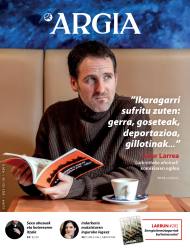


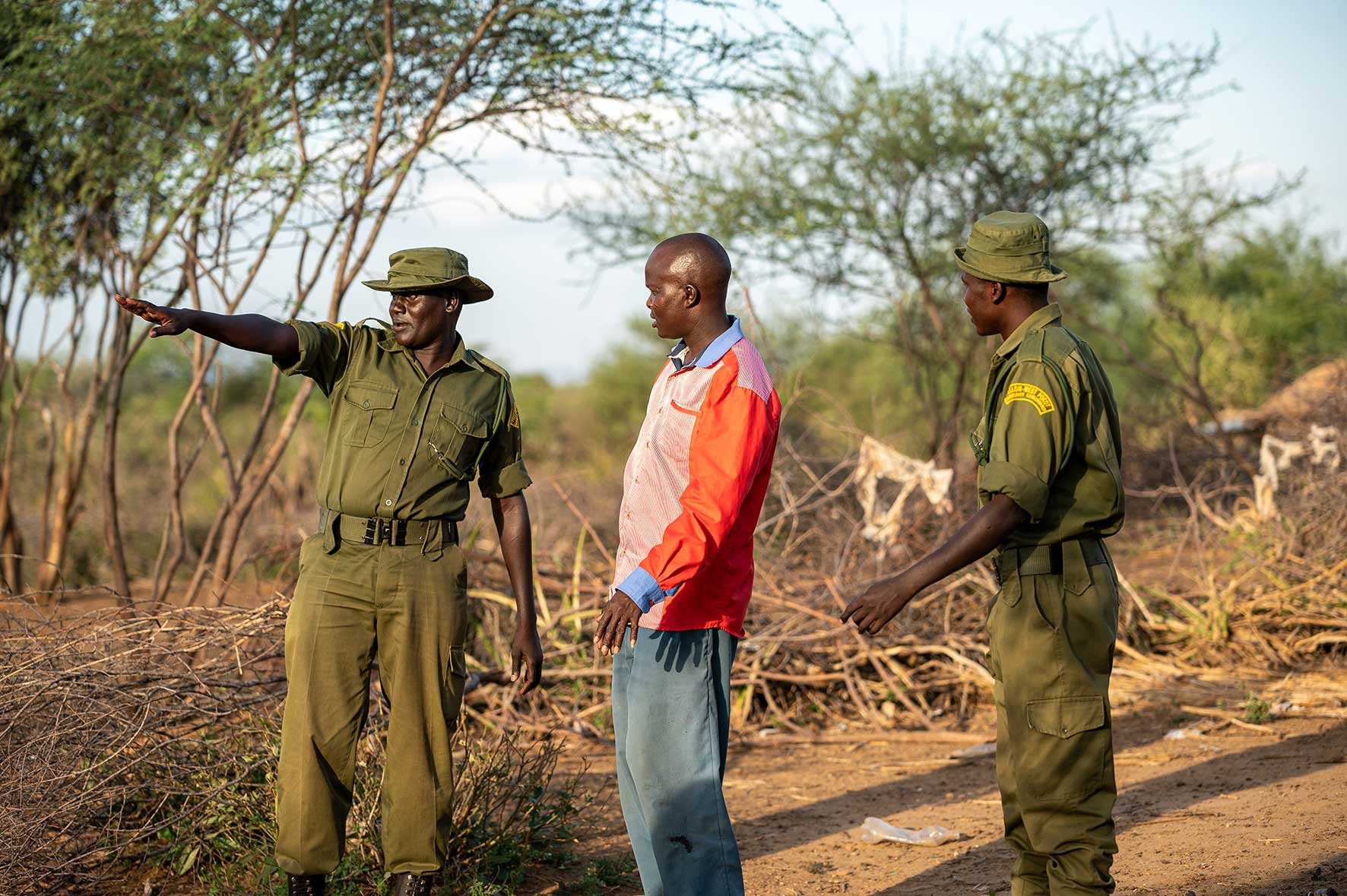
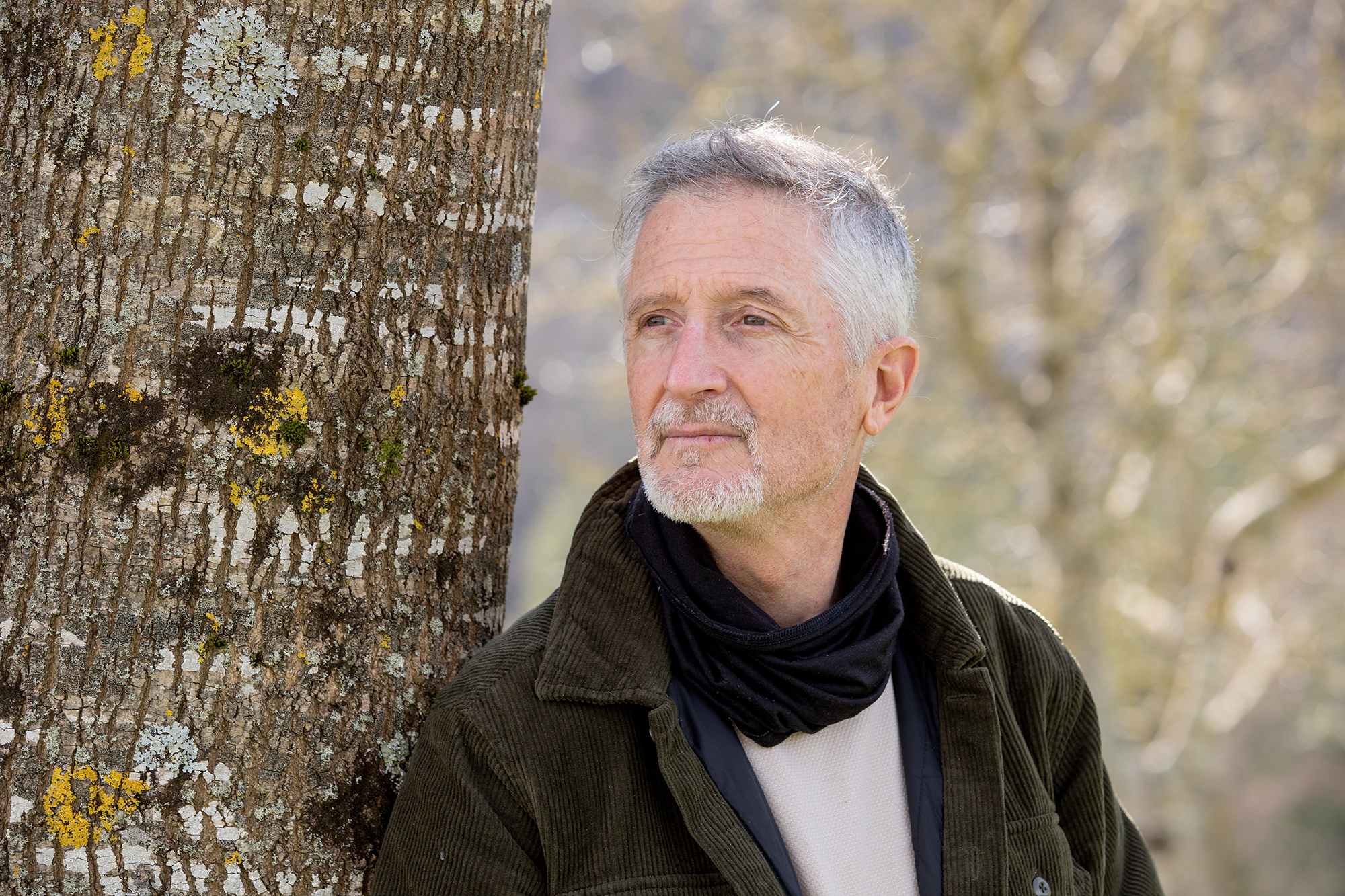


_Glaciar.png)

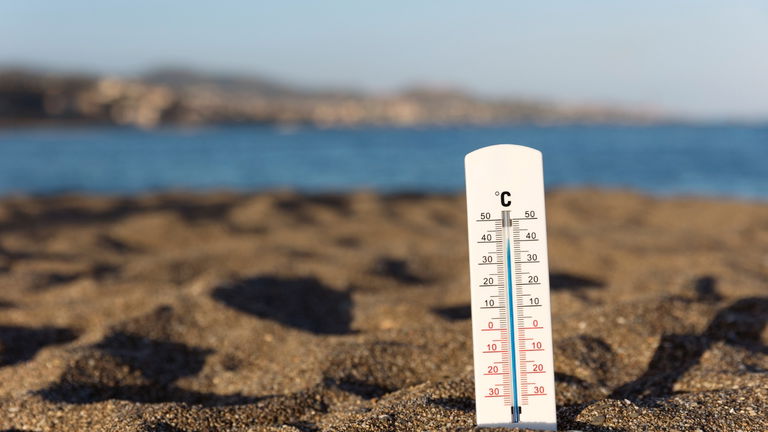
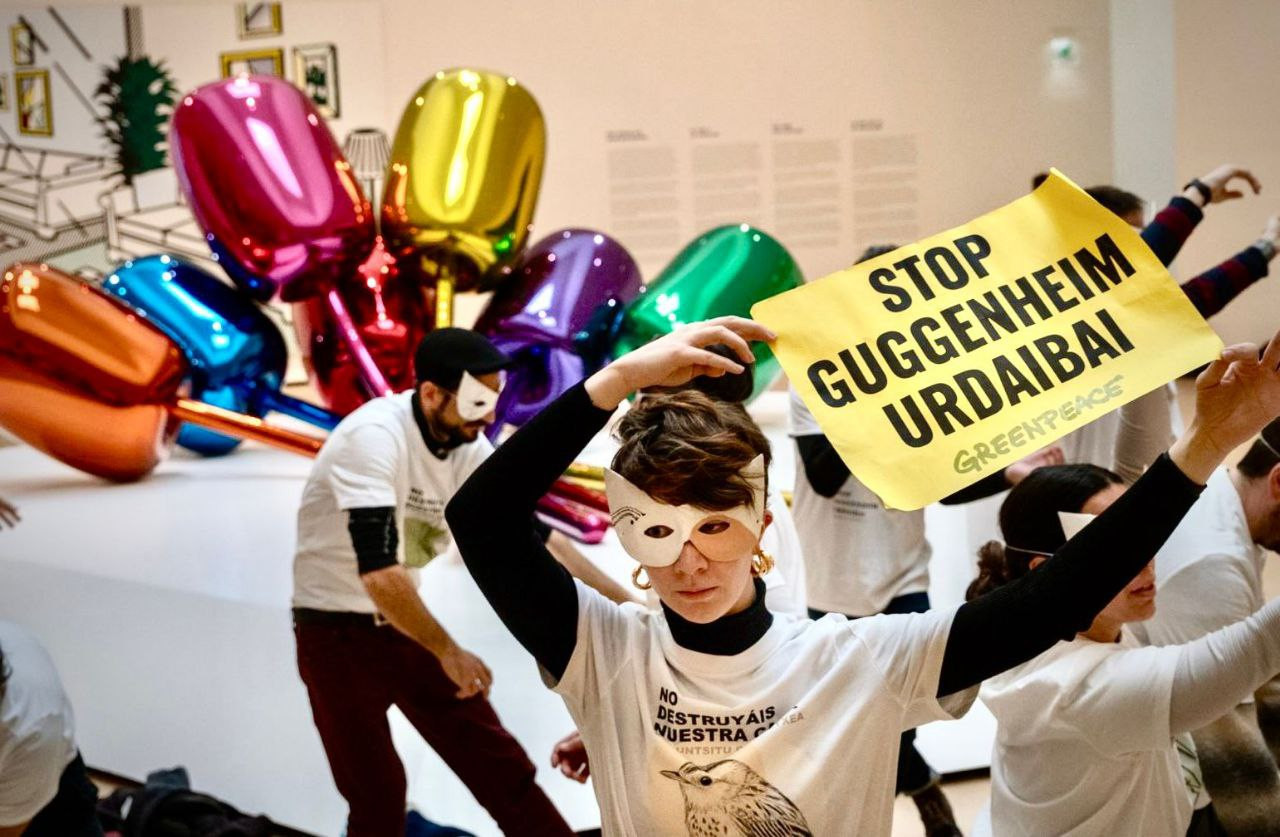

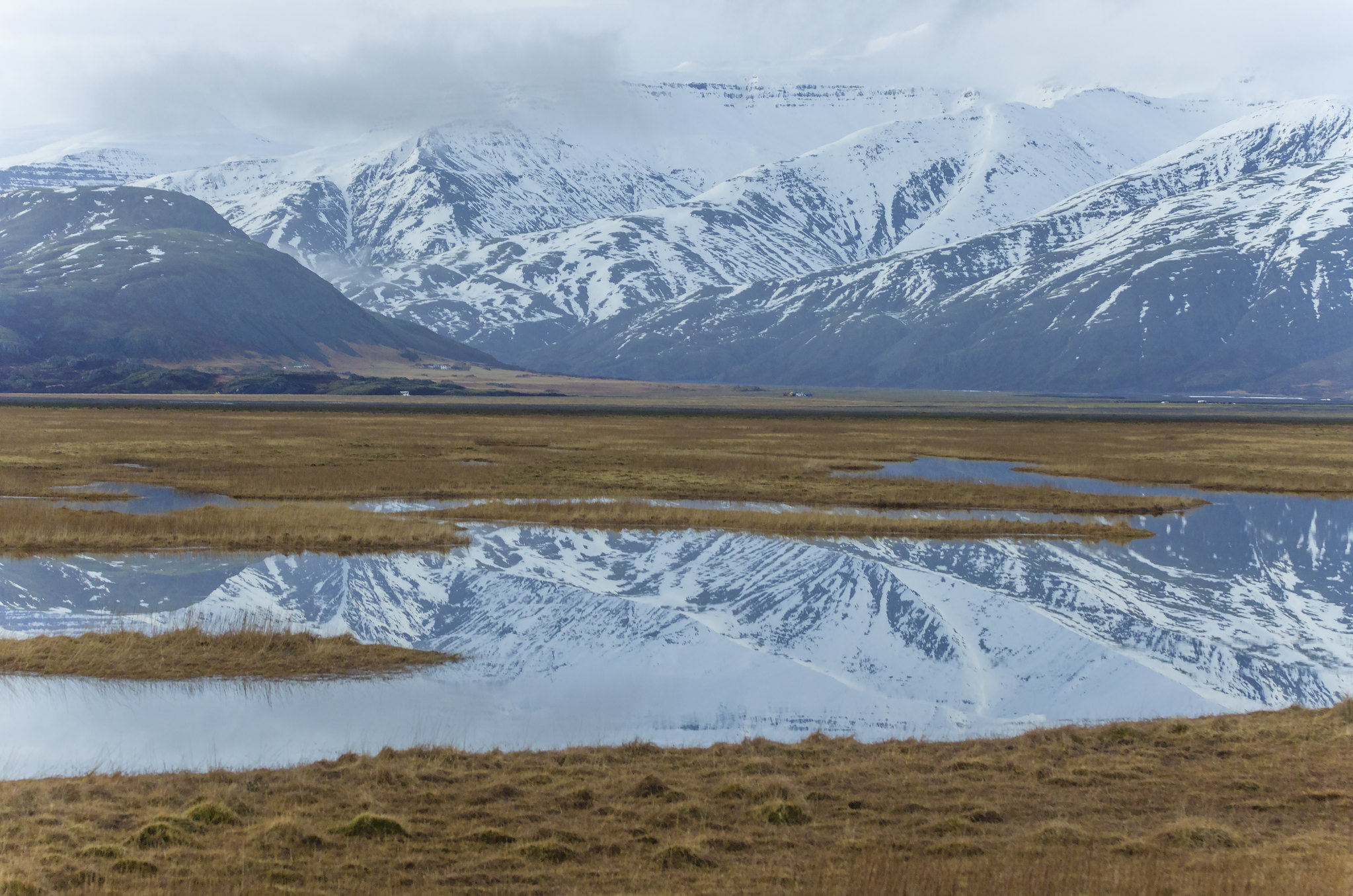
-(1).jpg)
